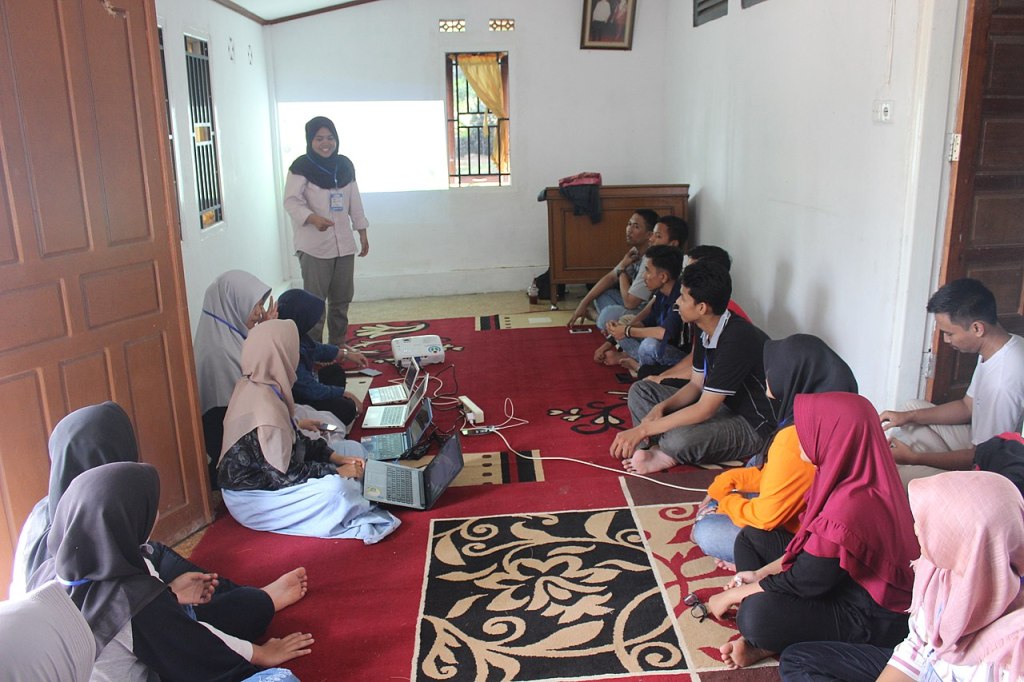
As part of the ongoing Universal Code of Conduct (UCoC) enforcement conversations, the Wikimedia Foundation reached out to a number of communities to hear their thoughts on potential enforcement mechanisms for the global policy. As a part of the team, I had the chance to interact closely with the Indonesian community on the subject.
Indonesian is one of the communities that is often looked upon as one entity, but in reality it is an amalgamation of diverse small communities speaking different dialects. This is a community that knows how to bring and keep small communities together. Because of this unique attribute, it was imperative to know this community’s thoughts on an enforcement system for the UCoC. During the discourse, I learned a number of new things about my own community and discovered how important it is to have cultural knowledge for creating an effective enforcement mechanism.
One of the wonders of the Wikimedia movement is the sheer diversity of language and cultures that it hosts. More than 300 languages have a Wikipedia project, and a number of them also host additional projects such as Wiktionary, Wikiquote, Wikibooks, and others. At least fifty-six language groups were represented all over the Wikimedia projects, contributing to a depth of knowledge diversity that is incomparable to any project for free knowledge known today.
Each project has its own culture and institutional memory that carry a significant influence on how the community sort out its own affairs. In this regard, you can think of each community as a little village unto itself: autonomous, self-governing, but also bound by certain cultural and social resemblance with each other. They shared common interests too: the Movement Strategy process, which sought to define how the movement looks like and works by 2030, gave an insight how the various fora of the Wikimedia community think of themselves; and most importantly, how they should treat each other.
My experience working with the Indonesian and Malay communities throughout the Phase 2 of Universal Code of Conduct project, which sought to hear and listen to what Wikimedians have to say about the Code’s enforcement mechanisms and pathways, is a testament for this thesis. UCoC was mandated by the Movement Strategy process, specifically by its recommendation to “Provide for Safety and Inclusion”. Between January to March this year, I had the opportunity to talk and listen to Wikimedians whose primary languages were the variants of the Malay language spoken in the “Malay world”, a loosely-defined concept that mostly covers Indonesia, Malaysia, Singapore, and Brunei.
The level of cultural and linguistic diversity in this region is often not well understood. Indonesia alone boasts some 700 local languages; only the national language Bahasa Indonesia (a modernized form of Malay), and ten major local languages have at least one Wikimedia project. Malaysian, Singaporean, and Brunei Wikimedians congregate at Malay Wikipedia, but the three countries also have their share of local tongues that have not made it to any form of Wikimedia project yet.
The Malay Wikipedia was founded as early as October 2002, followed by Indonesian Wikipedia in May 2003. In the early days, there was a proposal to merge both editions, as the text is basically intelligible to speakers of both languages. This was abandoned because of stylistic differences as well as different interests of the editing communities. Indonesian projects grew at a much faster rate compared to its neighbor across the Strait: not only because of the establishment of Wikimedia Indonesia as the region’s first Wikimedia chapter in 2008, but also owing to the (marginally) better state of freedom of speech and Internet in the country.
Throughout the UCoC consultation, I learned that the delicate tangles of culture, language, politics, and social situation are important factors of how local projects and communities position and govern themselves within the Wikimedia movement. The Malay community, for example, did not have a permanent dispute resolution body like an Arbitration Committee; but when there was an instance when such a body was needed, the community quickly created one; modeled after the country’s British-influenced common law trial system. In the Indonesian community, where many offline activities like edit-a-thon and workshops are supported by Wikimedia Indonesia, most dispute resolution and behavioral cases are handled by the local communities, sometimes with the help of WMID staffers.
Both Indonesian and Malay communities have not really participated in Wikimedia governance-related activities in recent years, owing to the language barrier and unfamiliarity with the internal workings of the movement; indeed, for some editors, the UCoC consultation was the first time the Foundation had directly reached out to them. The communities trusted their local sysops and preferred to give the responsibility to enforce the UCoC to them with support from local Affiliate in Indonesian context. The consultation could be summarized best in terms that there is no one-size-fits-all answer to meaningfully enforce the Universal Code of Conduct. A Wikimedia ecosystem where intercultural understanding between the “villages” is properly functioning should be a precondition for enforcement of any behavioral policies; without it, even the best-drafted document could be “lost in enforcement”. Together with better outreach to underrepresented communities in context of internal Wikimedia governance like this, cultural considerations must be prioritized to draft a global enforcement guideline for the UCoC.
UCoC Facilitators Blog Posts
- Self-governance of older Wikimedia projects – the curious case of Polish Wikipedia
- Consulting the UCoC Enforcement Within an Intercultural Wikimedia Ecosystem
- Lessons from the recent influx of teenagers in the Korean Community: How do we deal with them as active contributors?
- Facilitating Wikimedia Communities in West Africa for the UCoC

Can you help us translate this article?
In order for this article to reach as many people as possible we would like your help. Can you translate this article to get the message out?
Start translation